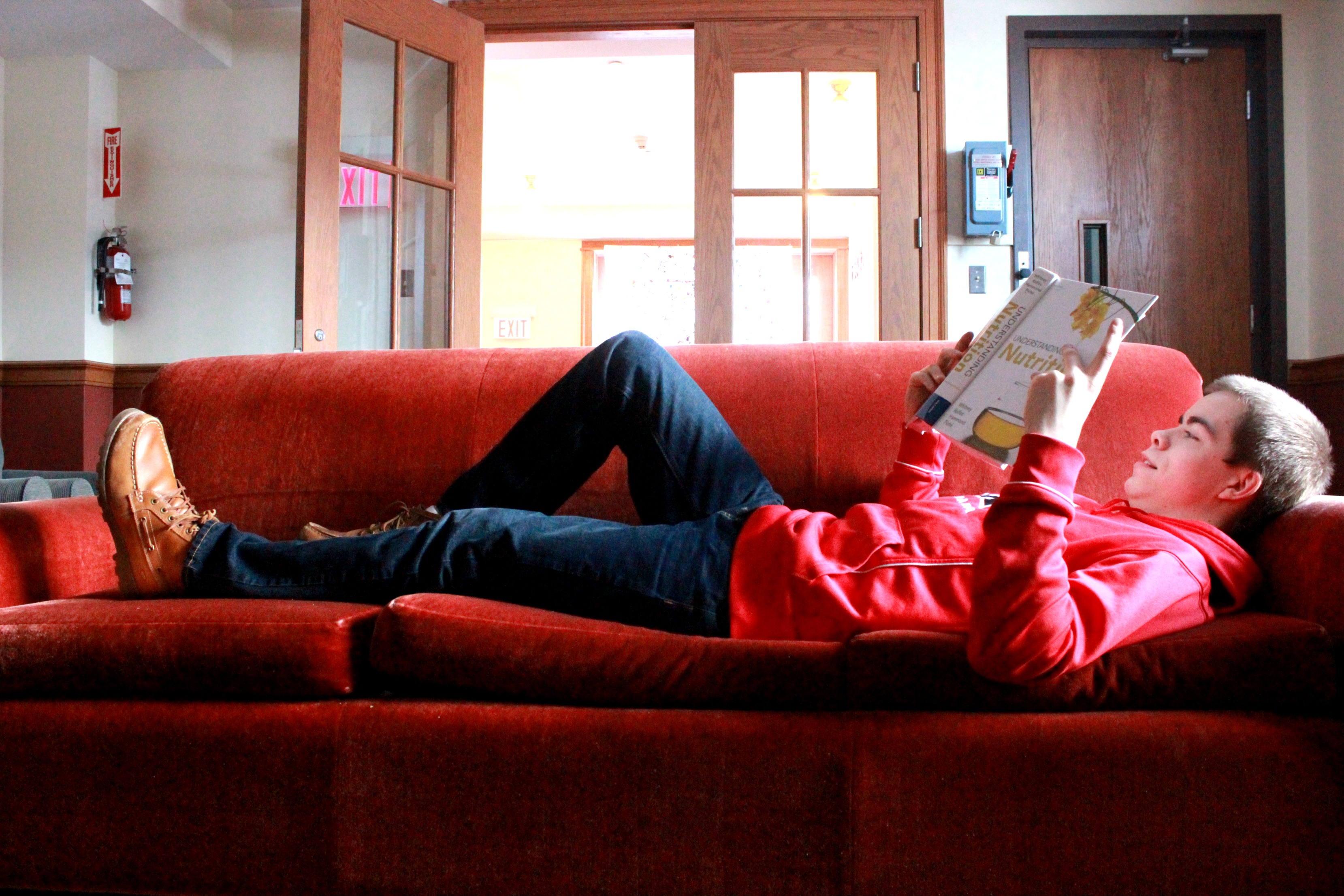When students start their university education, they expect to do at least as well as they had in high school and to graduate with a degree in four years. Unfortunately, some students find the transition to university so challenging that they end up not graduating or taking a lot longer than they had intended. A large-scale research project underway at Acadia is aimed at ultimately increasing students’ academic success by looking at ways that university students can be supported in their education.
Academic performance clearly predicts whether students will remain at university. As such, it is important to identify early on which students would benefit from extra academic support and to identify which types of academic support are effective and helpful for students. Too often, support is offered to students only after they have begun to struggle academically. The Student Success Project is focused on identifying students who may face academic difficulties before problems emerge.
One seemingly obvious factor that affects academic success, but that has received very little study, is students’ experiences with learning to read when they were in elementary school. Reading skills have a large impact on the ability to understand and complete coursework. Increasing numbers of students entering university have experienced considerable difficulty learning to read, and may find the type of reading in university even more challenging. Students may be able to overcome their reading difficulties by using effective learning, studying, and reading strategies. Support services (such as academic advising, tutoring, and writing support) may also help students so that they are more likely to complete their university degrees.
The Partnership for Student Success was formed between multiple academic and student services organizations based on a common goal of fostering success in undergraduate students. Led by Dr. Hélène Deacon from Dalhousie University, this Social Sciences and Humanities Research Council- funded partnership unites researchers and professionals at Acadia, Dalhousie, Mount Saint Vincent University, and the University of Alberta. The goal of the Partnership is to support under-identified and under-serviced postsecondary students. Through the Partnership for Student Success, Acadia has launched the Student Success Project. This project is geared toward assessing whether students who had difficulty learning to read are having academic difficulties in university. Also of interest is whether encouraging students to take advantage of available university services can help them overcome these challenges. The study’s overall goal is the early identification of students who are at risk for academic difficulties, as well as the provision of remedial support through effective strategy use.
The Student Success Project at Acadia is aimed at promoting academic success in first-year undergraduates by assessing the link between historical reading challenges, learning/studying/reading strategies, help-seeking behaviour, and academic performance. The study that is being conducted this year by Dr. Sonya Major and Adria Markovich, is a replication of a prior study that was completed two years ago at Acadia.
Two years ago, Dr. Major’s research team found that students who reported a history of reading difficulties had on average lower GPAs than students with no history of reading difficulties. Furthermore, stronger readers endorsed the use of more learning, studying, and reading strategies than did the students with a history of reading difficulties. Perhaps not surprisingly, for both groups of students, the use of learning and study skills was associated with higher first-year GPA. Of these skills, time management was found to be especially important for students with a history of reading difficulties. The study also assessed the role of help-seeking from parents, peers, professors, and TAs. Interestingly, Dr. Major’s lab found that for students with a history of reading difficulties, seeking help from peers was associated with more motivation, less anxiety, and higher GPA. For the students who had not experienced reading challenges, seeking help from professors was associated with more self-testing, while seeking help from parents was associated with less use of test strategies, less motivation, and lower GPA.
The results from this first study at Acadia uncovered such promising findings that Dr. Major’s lab is replicating the study to gain information on this year’s incoming class of undergraduate students. This past September, all first-year undergraduates at Acadia were invited to complete an online survey in exchange for $15 Axe Cash. An overwhelming 43% – almost half – of the incoming class responded to the survey, sharing their experiences with reading, learning, and studying, and gave permission for the team to track their academic record while at Acadia. Dr. Major’s lab would like to extend a heartfelt thanks to everyone who took the time to complete the survey.
With such a high rate of student participation, the team has been able to collect valuable information that provides insight into the link between reading challenges, strategy use, help-seeking behaviour, and academic performance. Ultimately, this information can be used to guide future support services in order to give students the best chance of completing their university degrees and succeeding academically.
